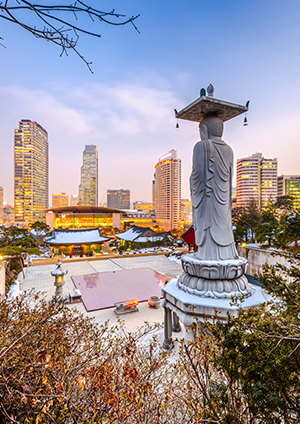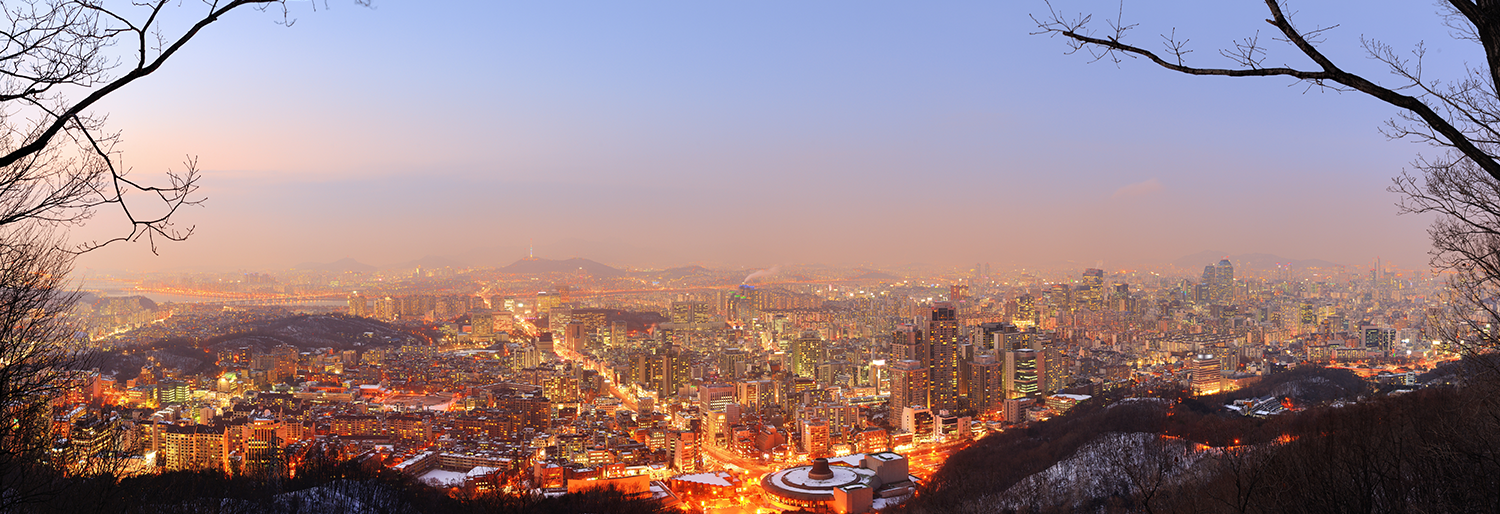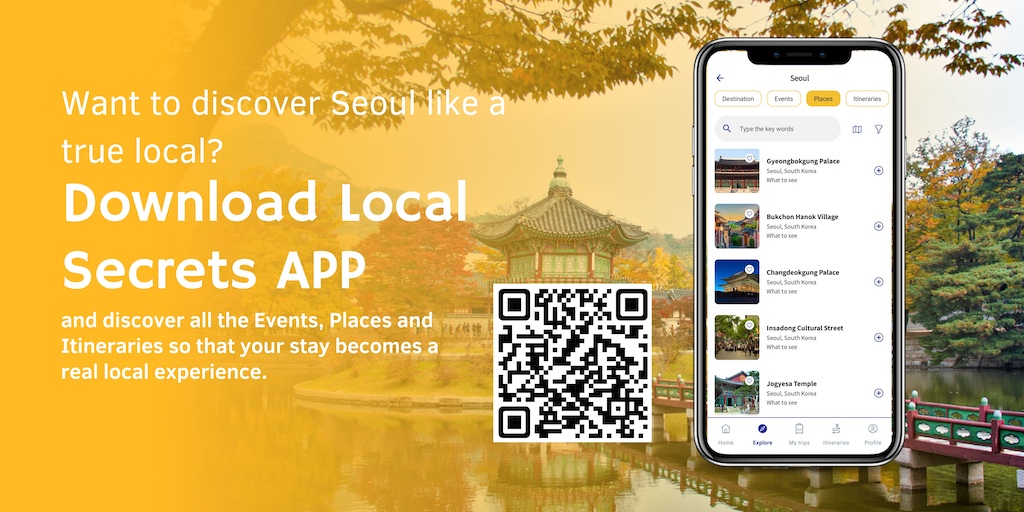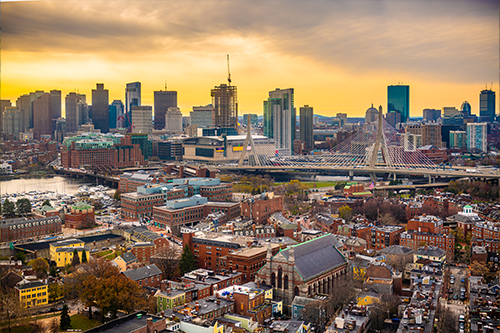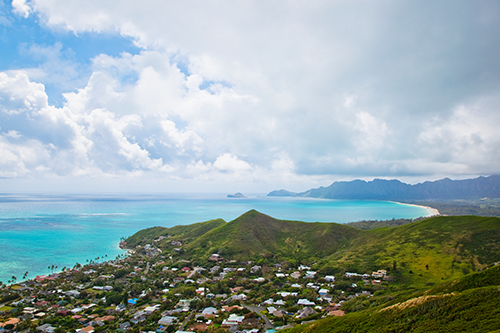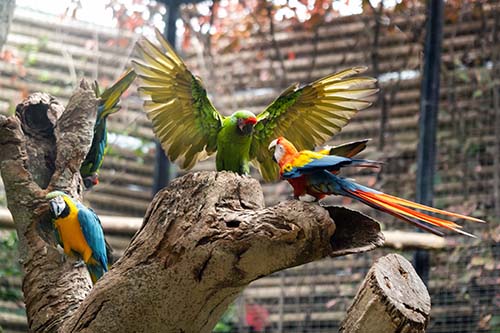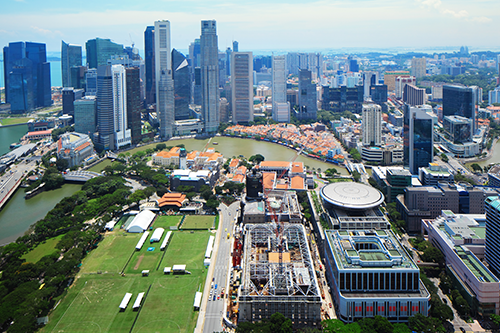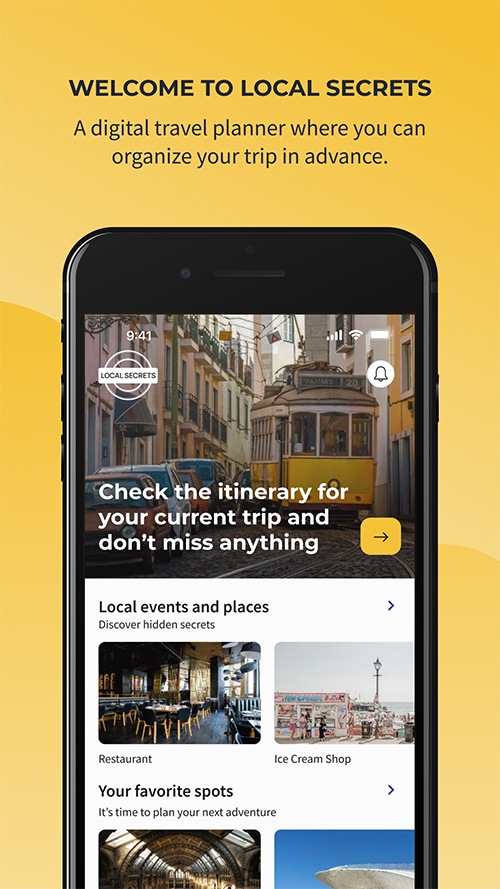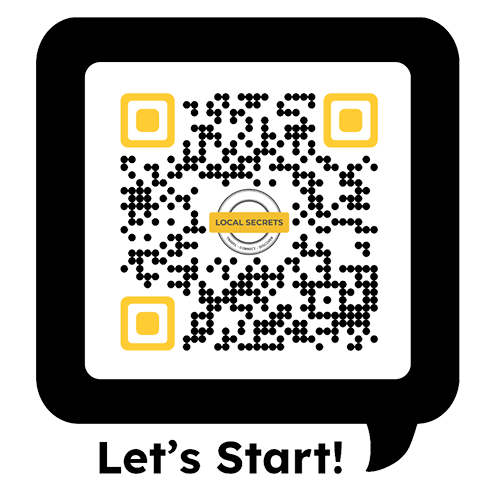Seoul
Seoul, the buzzing capital of South Korea, is nestled in the northwest part of the country. With around 10 million people calling it home, this city is a lively mix of modernity and tradition. The weather here is pretty diverse, with average temperatures ranging from chilly winters to warm summers, so be ready for some variety.
Seoul attracts tons of tourists every year thanks to its unique blend of cutting-edge technology, rich history, and vibrant culture. Whether you’re into exploring historic sites or diving into the latest trends, there’s something here for everyone.
The best time to visit is during spring and autumn when the weather is just right for exploring the city’s many attractions. So if you’re looking for a city where old meets new in an exciting way, Seoul is definitely the place to be!
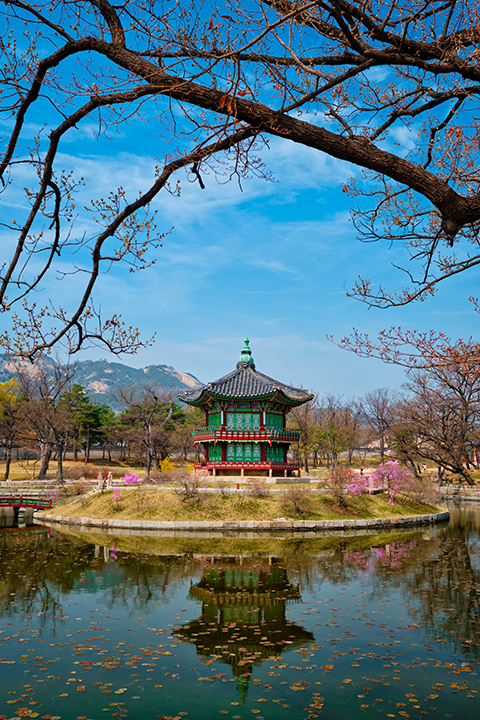
Hyangwonjeong Pavilion
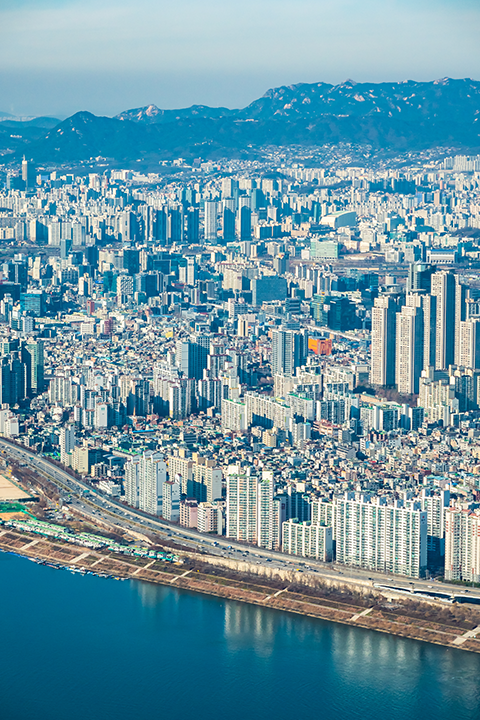
Aerial view of Seoul City
Arriving to Seoul
Seoul, the capital of South Korea, is a city that truly blends the modern with the traditional. You’ll land at Incheon International Airport, which is a major hub and about an hour from the heart of Seoul. Once you’re in the city, getting around is easy thanks to the extensive and efficient subway system. The subway is user-friendly with English signs, making it simple to navigate, and it connects you to all the key areas you’ll want to explore.
For where to stay, neighborhoods like Myeongdong and Hongdae are fantastic options. Myeongdong is ideal for those who love shopping and street food. This area is bustling with shops, eateries, and street vendors offering everything from cosmetics to tasty snacks. Hongdae, on the other hand, is known for its youthful, energetic atmosphere, with plenty of indie cafes, trendy boutiques, and lively nightlife. If you’re looking for a taste of traditional Seoul, Insadong is the place to be. It’s filled with antique shops, traditional tea houses, and cultural experiences.
Getting around Seoul is pretty straightforward. The subway is your best bet for convenience and speed, and you’ll find it connects all major attractions. Buses are another great option and can be a bit cheaper, though they might be less direct. Taxis are also readily available, and they’re a good choice if you’re carrying a lot of shopping or just prefer a more private ride.
When it comes to food, Seoul offers a culinary adventure. Street food is a must-try, with treats like tteokbokki (spicy rice cakes) and hotteok (sweet pancakes) that are both delicious and affordable. For a more sit-down experience, Korean barbecue is hugely popular, where you grill your own meats at the table, and bibimbap, a mixed rice dish with vegetables and meat, is both hearty and flavorful. Don’t miss out on traditional Korean dishes like kimchi, a fermented vegetable side dish that’s a staple in Korean cuisine.
There’s so much to see and do in Seoul! Gyeongbokgung Palace, the largest of the Five Grand Palaces built during the Joseon Dynasty, offers a glimpse into Korea’s royal history. N Seoul Tower, perched on Namsan Mountain, provides panoramic views of the city and is a great spot for photos. For a deeper dive into Korea’s past, visit the War Memorial of Korea, which offers exhibits on Korea’s military history, or take a tour to the DMZ (Demilitarized Zone) for a unique look at the border between North and South Korea.
If you’re looking for a relaxing day, stroll along Cheonggyecheon Stream, a revitalized urban stream that runs through the city center, or explore Bukchon Hanok Village, a neighborhood that preserves traditional Korean architecture and offers a peaceful escape from the bustling city streets.
Whether you’re shopping, exploring historical sites, or just soaking in the local culture, Seoul provides a dynamic mix of experiences that are sure to make your visit memorable.
Accomodation
Looking for a unique hotel experience?
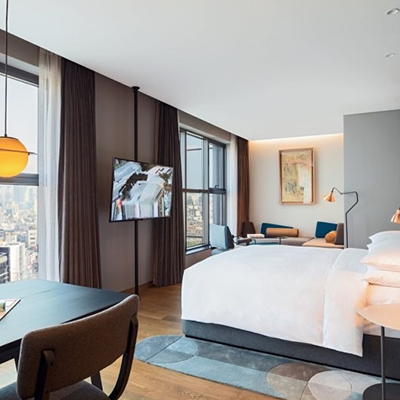
Local Secrets has selected a variety of unique hotels that make lodging a special experience. These hotels share the vision of quality and service that we want for our travelers.
Want to feel like home?
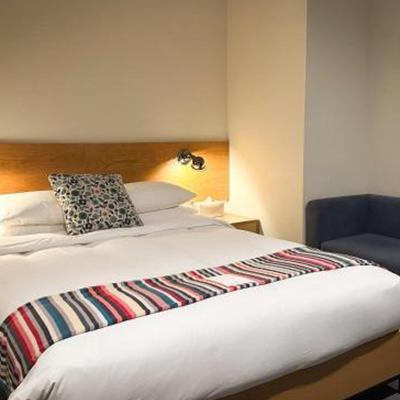
Local Secrets has developed a network of professional experts in tourist accommodations committed to quality and service to guarantee a unique experience to our travelers.
Members of Hospitality Privilege Program
Members of Hospitality Privilege Program
Currency: The official currency of Seoul is South Korean Won (KRW) 1 KRW is equivalent to US$ 0.0007374
Keep in mind before travelling to Seoul
Seoul is a city that knows how to throw a party, and it’s packed with festivals throughout the year. Kicking things off, the Seoul Kimchi Making & Sharing Festival is a cool way to dive into Korean food culture, where locals and tourists come together to make and share kimchi. Then there’s the Seoul Lantern Festival, which lights up the Cheonggyecheon Stream with gorgeous lanterns and decorations.
The Seoul Jazz Festival is a must for music lovers, featuring both local and international jazz artists. If you’re into traditional music and dance, the Seoul Drum Festival will have you grooving to dynamic rhythms. Chuseok, Korea’s version of Thanksgiving, is celebrated with traditional games and foods, while Seollal, the Lunar New Year, offers a deep dive into Korean customs and rituals.
For a taste of local art and crafts, don’t miss Seoul Design Festival, showcasing innovative design and creative projects.
If you’re up for some day trips, you can explore Incheon for its Chinatown and beach, check out Nami Island for beautiful nature, head to Suwon to see its impressive fortress, visit Gangnam for upscale shopping, enjoy the historical charm of Gyeongju, or hike around Bukhansan National Park for stunning views and nature trails.
Tips to visit Seoul
The main languages spoken are Korean and English, so navigating the city is pretty easy. People usually eat breakfast around 7-9 AM, lunch from 12-1 PM, and dinner between 6-8 PM. Business hours typically run from 9 AM to 6 PM, Monday to Friday, with weekends off.
Tipping isn’t really a custom here, but it’s always appreciated if you do. Around 10% is a good range if you feel like leaving a tip. Seoul’s healthcare system is top-notch, with both public and private hospitals available. Dress code-wise, it’s smart casual, so comfortable but respectful attire is best. And if you hear someone say “Jinjja”, it means “really” or “seriously”—a common expression in daily conversations.
